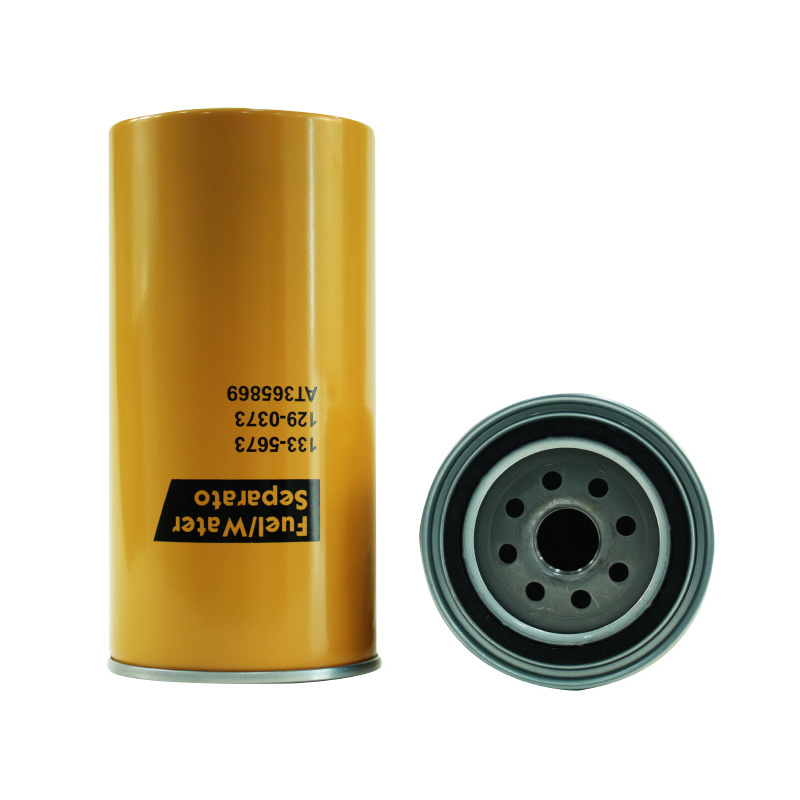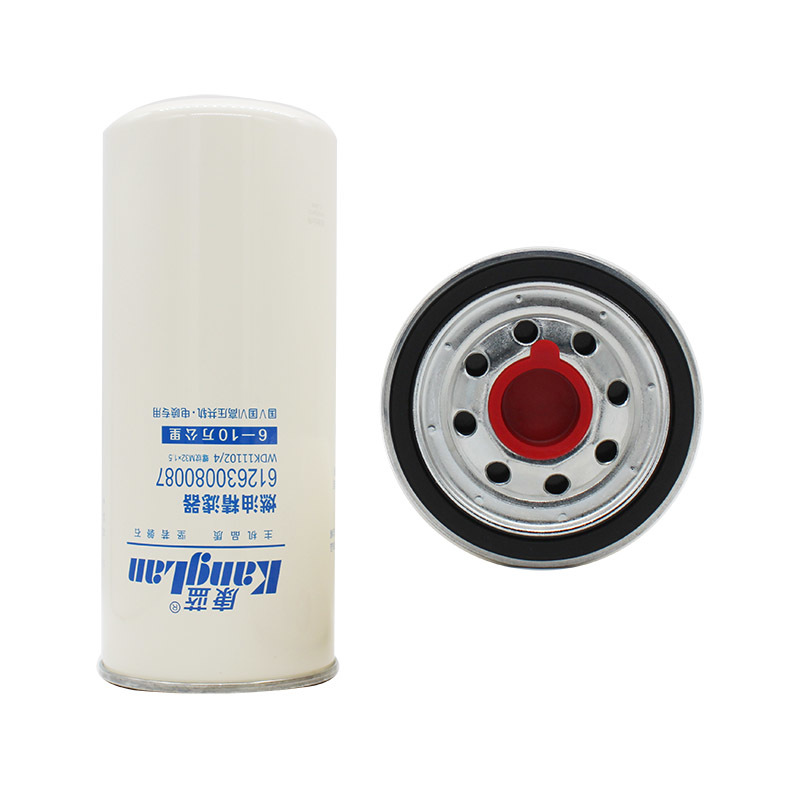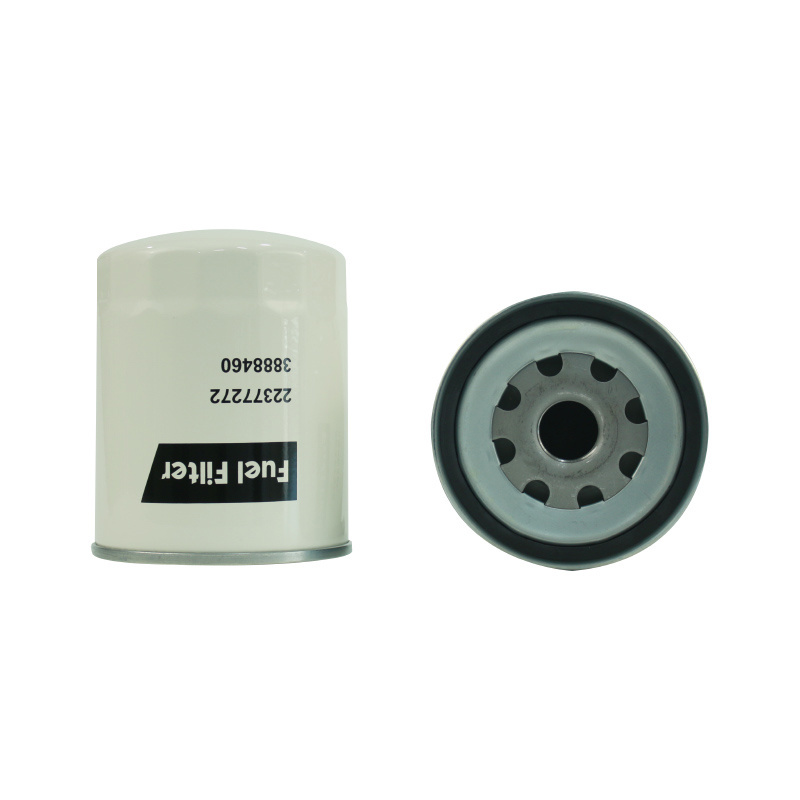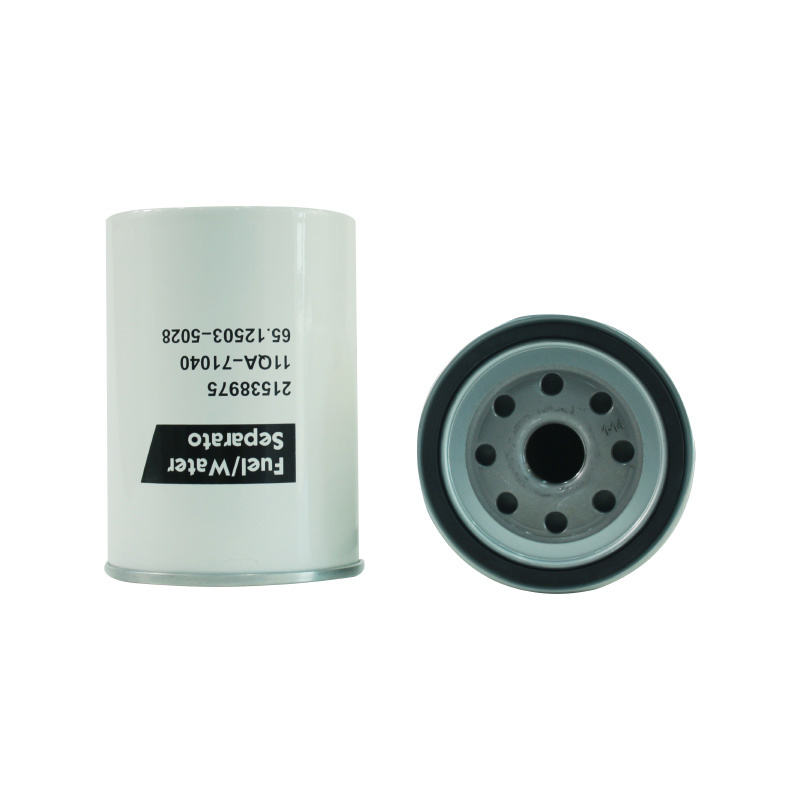Welcome to Hebei Takai Vehicle Parts Technology Co., Ltd.
Selecting the Right Fuel Filter for Your Dump Truck: A Comprehensive Guide
Release Time:
May 26,2025
Understanding Fuel Filters: The Heart of Your Dump Truck's Fuel System Fuel filters serve a critical role in maintaining the performance and longevity of any vehicle, particularly for dump trucks that operate under challenging conditions. The fuel filter is designed to eliminate impurities, dirt, and contaminants from diesel fuel before it reaches the engine. This process ensures that only clean f
Understanding Fuel Filters: The Heart of Your Dump Truck's Fuel System
Fuel filters serve a critical role in maintaining the performance and longevity of any vehicle, particularly for dump trucks that operate under challenging conditions. The fuel filter is designed to eliminate impurities, dirt, and contaminants from diesel fuel before it reaches the engine. This process ensures that only clean fuel enters the combustion chamber, promoting optimal combustion and engine efficiency.
The Importance of Selecting the Right Fuel Filter
When it comes to dump trucks, the right fuel filter can make all the difference. Choosing the appropriate filter helps avoid engine issues, extends the lifespan of fuel injectors, and maintains top performance levels. Below, we discuss several factors that illustrate why selecting the right fuel filter is crucial.
Cost-Effectiveness and Reduced Downtime
A high-quality fuel filter can save you significant costs in the long run. By preventing fuel contamination, you reduce the likelihood of costly repairs and unplanned downtime. A failed fuel filter can lead to fuel injector damage, requiring expensive replacements and extended downtime.
Enhanced Engine Performance
An optimal fuel filter ensures that clean fuel reaches your engine, facilitating better combustion. Clean fuel leads to improved engine performance, better throttle response, and enhanced fuel efficiency. In contrast, a clogged or inefficient filter can lead to power loss and increased fuel consumption.
Environmental Impact
Modern regulations require that vehicles minimize emissions. A well-functioning fuel filter plays a crucial role in achieving this by ensuring complete combustion within the engine. By selecting the right filter, dump truck owners can contribute to reducing their environmental footprint.
Types of Fuel Filters for Dump Trucks
Understanding the different types of fuel filters available is essential for making an informed choice. Each type is designed to cater to specific requirements and engine configurations.
1. Inline Fuel Filters
Inline fuel filters are among the most common types used in dump trucks. They are installed in the fuel line and filter the fuel as it flows from the tank to the engine. These filters are easy to replace and maintain, making them a popular choice for many operators.
Benefits of Inline Fuel Filters
- **Cost-Effective:** Generally cheaper than other types of filters.
- **Easy Maintenance:** Simple to install and replace.
- **Versatile:** Suitable for various models and engine types.
2. Spin-On Fuel Filters
Spin-on fuel filters come pre-assembled in a single unit, making them easy to replace. They are designed for heavy-duty applications, such as dump trucks, and can handle a higher volume of contaminants.
Advantages of Spin-On Fuel Filters
- **Durability:** Built to withstand the rigors of heavy-duty use.
- **Convenience:** Quick and easy replacement process.
- **High Filtration Efficiency:** Excellent at trapping small particles and contaminants.
3. Cartridge Fuel Filters
Cartridge filters are another option, often used in combination with a filter housing. They require removal of the housing for filter replacement, which can be more labor-intensive but offers superior filtration capabilities.
Key Features of Cartridge Fuel Filters
- **Customization:** Available in various specifications to meet specific filtration needs.
- **Higher Capacity:** Can hold more contaminants, making them suitable for longer intervals between changes.
- **Enhanced Filtration:** Often utilize advanced technology for superior filtering.
Key Factors to Consider When Choosing a Fuel Filter
Selecting the right fuel filter for your dump truck involves careful consideration of several important factors:
1. Compatibility with Your Vehicle
Before purchasing a fuel filter, ensure it is compatible with your dump truck’s make and model. Consult the manufacturer's specifications or reach out to a professional if you are unsure. Compatibility is critical to ensure optimal performance and avoid damage to the engine or fuel system.
2. Filtration Efficiency
Different filters have varying levels of filtration efficiency, which refers to their ability to remove contaminants from fuel. Look for filters that can capture particles as small as 10 microns or less, as this level of filtration will provide better protection for your engine.
3. Flow Rate
The flow rate indicates how quickly fuel can pass through the filter. A filter with a lower flow rate may restrict fuel delivery, leading to reduced engine performance. Ensure the filter you select can accommodate your dump truck's fuel flow requirements.
4. Manufacturer Reputation
Investing in a reputable brand is essential. Well-known manufacturers often provide quality assurance, warranties, and reliable customer service. Research brands and read user reviews to make an informed decision.
5. Maintenance and Replacement Schedule
Consider how often the filter will need to be replaced based on your truck's usage and maintenance schedule. Some filters require more frequent changes, while others can last longer. Factor in replacement costs and ease of access when selecting.
Installation Tips for Your Fuel Filter
Proper installation of your fuel filter is vital for achieving optimal performance. Follow these tips for a successful installation:
1. Gather Necessary Tools and Equipment
Before starting, ensure you have the right tools on hand. Commonly needed items include wrenches, pliers, a fuel catch container, and clean rags. Having everything ready will streamline the installation process.
2. Depressurize the Fuel System
Before replacing the fuel filter, it’s essential to depressurize the fuel system to avoid any spills or accidents. Locate the fuel pump fuse and remove it, then start the engine until it stalls, indicating that the pressure is relieved.
3. Remove the Old Filter
Carefully disconnect the old fuel filter, taking care to note the direction of fuel flow. This will ensure you install the new filter correctly. Use a fuel catch container to collect any residual fuel.
4. Install the New Filter
Position the new filter in the same orientation as the old one, ensuring the fuel flow direction matches. Secure all connections tightly to prevent leaks.
5. Test for Leaks
After installation, replace the fuse and turn the ignition to the "on" position without starting the engine. This will allow the fuel pump to pressurize the system. Check for any leaks around the filter. If leaks occur, tighten connections and retest.
Frequently Asked Questions About Fuel Filters for Dump Trucks
1. How often should I replace the fuel filter in my dump truck?
Typically, fuel filters should be replaced every 10,000 to 15,000 miles, but this can vary based on usage and fuel quality. Always refer to your truck's manual for specific recommendations.
2. Can I drive with a clogged fuel filter?
Driving with a clogged fuel filter is not advisable as it can lead to significant engine performance issues and potential damage.
3. What are signs of a failing fuel filter?
Signs include difficulty starting the engine, poor acceleration, stalling, and a decrease in fuel efficiency.
4. Are aftermarket fuel filters as reliable as OEM filters?
Many aftermarket filters are high-quality and can perform as well or better than OEM filters. However, it’s crucial to choose reputable brands.
5. Can I clean and reuse a fuel filter?
While some filters are designed for cleaning and reuse, many are not. It's best to follow the manufacturer's guidelines regarding cleaning and replacement.
Conclusion
Selecting the right fuel filter for your dump truck is not just a matter of preference; it is essential for maintaining optimal performance, enhancing fuel efficiency, and prolonging engine life. By understanding the types of filters available, considering key factors such as compatibility and filtration efficiency, and adhering to proper installation practices, you can make an informed decision that will benefit your vehicle in the long run. Prioritize quality, stay on top of maintenance, and your dump truck will reward you with reliable service and productivity.
You Can Also Learn More About Industry Trends












